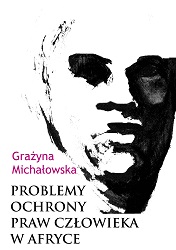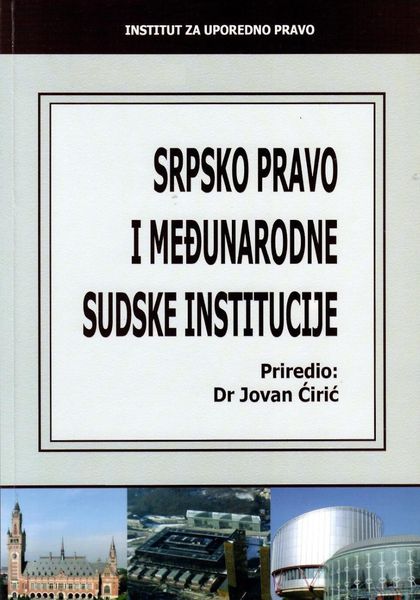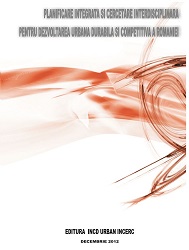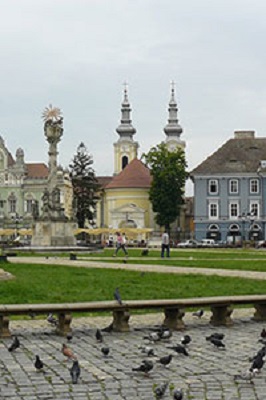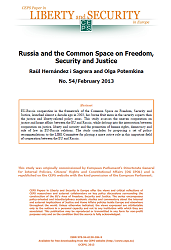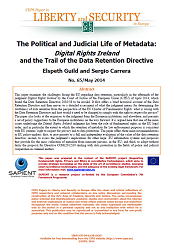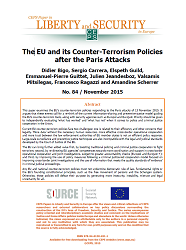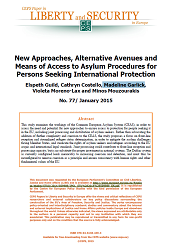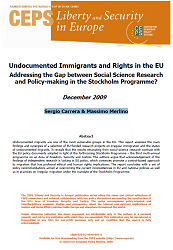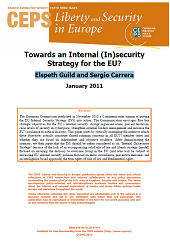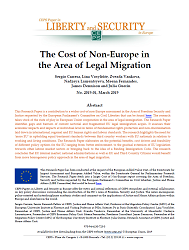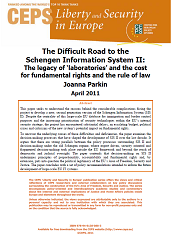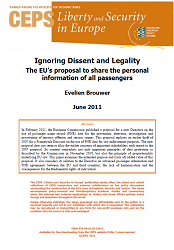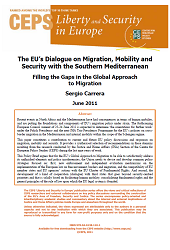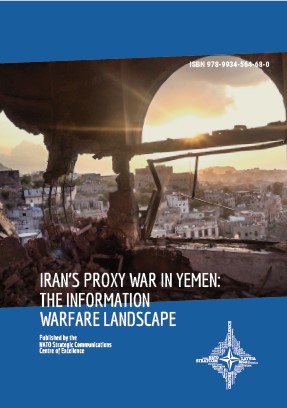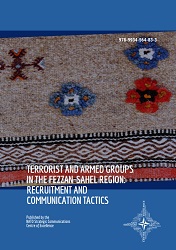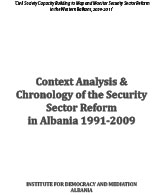
Context Analysis & Chronology of the Security Sector Reform in Albania 1991-2009
This study analyses the context in which the Security Sector Reform (SSR) has taken place in Albania since the fall of the communist regime. It has been conceptualised in three main periods, based on the social, political and economic perspectives that featured each phase during the process of Security Sector Reform. In this perspective, the beginning of the first period coincides with the collapse of communist regime in 1991 and ends with the 1997 crisis. Although Albania was never involved in the armed conflict and border reshuffle that featured the Former Yugoslav countries during the 90s, it largely suffered from backwardness and isolation, a legacy from the Cold War. This period was mostly characterised by the establishment of first generation reforms: the establishment of new institutions, structures, and chains of responsibility for the security sector. Nonetheless the process of first generation reform was not nalised, due to the crisis in 19971 which led to the collapse of the government. This represents the beginning of the second period: from 1997 to 2000. The third and final period efforts, namely the period from 2000 until 2009, seem to be more benefiting and realistic for the country considering the pace of SSR, contributing in the consolidation of the security sector institutions and governance.
More...
